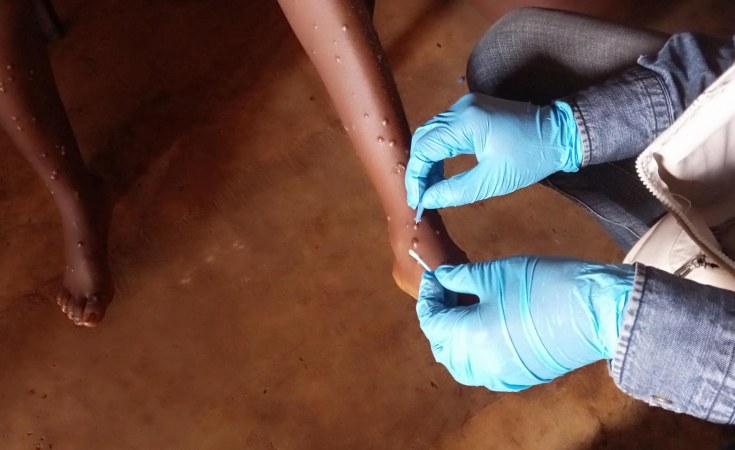Kampala, Uganda — Uganda is set to benefit from a £1 million (Approx. Shs 4.9billion) contribution from the UK government to bolster its response to the growing Mpox outbreak, which has now reached 80 confirmed cases.
The funding will be directed to Baylor College of Medicine and the Infectious Disease Institute, enhancing the government's overall Mpox response plan.
The support will focus on strengthening coordination efforts, surveillance, and risk communication, as well as community engagement strategies.
Philip Smith, the Acting British High Commissioner to Uganda, said on Oct.10 "It is critical that we work with the Government of Uganda to counter this outbreak. We are pleased to announce this additional funding that is being released immediately to support a timely response. "
"The UK's support will work in the affected districts to improve the response to the outbreak on the ground. The UK will stand with the Government and people of Uganda in tackling this outbreak," he added.
Health Minister, Dr. Jane Ruth Aceng, acknowledged the long-standing partnership with the UK, saying, "We appreciate the £1 million contribution via implementing partners Baylor Uganda and the Infectious Disease Institute in supporting us to respond efficiently to the Mpox outbreak."
The new funding builds on previous UK assistance, including £2.2 million provided in October 2022 to support the Government of Uganda's response to the Ebola outbreak. Between 2018 and 2020, the UK contributed nearly £10 million to enhance Ebola preparedness in Uganda, which has improved the government's ability to handle the current situation.
11 new confirmed cases
This development came as the Ministry of Health reported on Oct. 10 of 11 new confirmed Mpox cases including five in Kampala, one in Wakiso, and three in Nakasongola, which have become a hotspot.
Among the 91 infected, 97.5% are Ugandans, while 2.5% are foreigners. The health ministry urged compassion toward those affected, stating, "People who have had Mpox should not be stigmatized but handled with compassion."
The Ministry of Health has intensified preventive measures, supported by the World Health Organization (WHO) and other partners. These efforts include enhanced surveillance, case management, risk communication, community engagement, and public awareness campaigns to curb the disease's spread.
Team dispatched to Nakasongola
Meanwhile, in response to the surge in cases, an emergency response team from the Ministry of Health and WHO was on Friday dispatched to Nakasongola District. Health officer, Byamukama Agaba reported that two isolation and treatment units have been established at Nakasongola Health Centre IV and Lwampanga Health Centre III.
"We plan to intensify contact tracing, including listing, follow-up, and risk communication in the affected villages, as well as conduct active case finding in the community and health facilities," he said.
The district, identified as a new hotspot, has seen a rise in cases linked to local bars and lodging facilities frequented by the fishing community.
The WHO declared Mpox a public health emergency of international concern in August, highlighting its potential for further global transmission. Mpox, also known as monkeypox, is an infectious disease caused by the monkeypox virus, which spreads through close contact. Symptoms include fever, swollen lymph nodes, sore throat, muscle aches, skin rash, and back pain.


